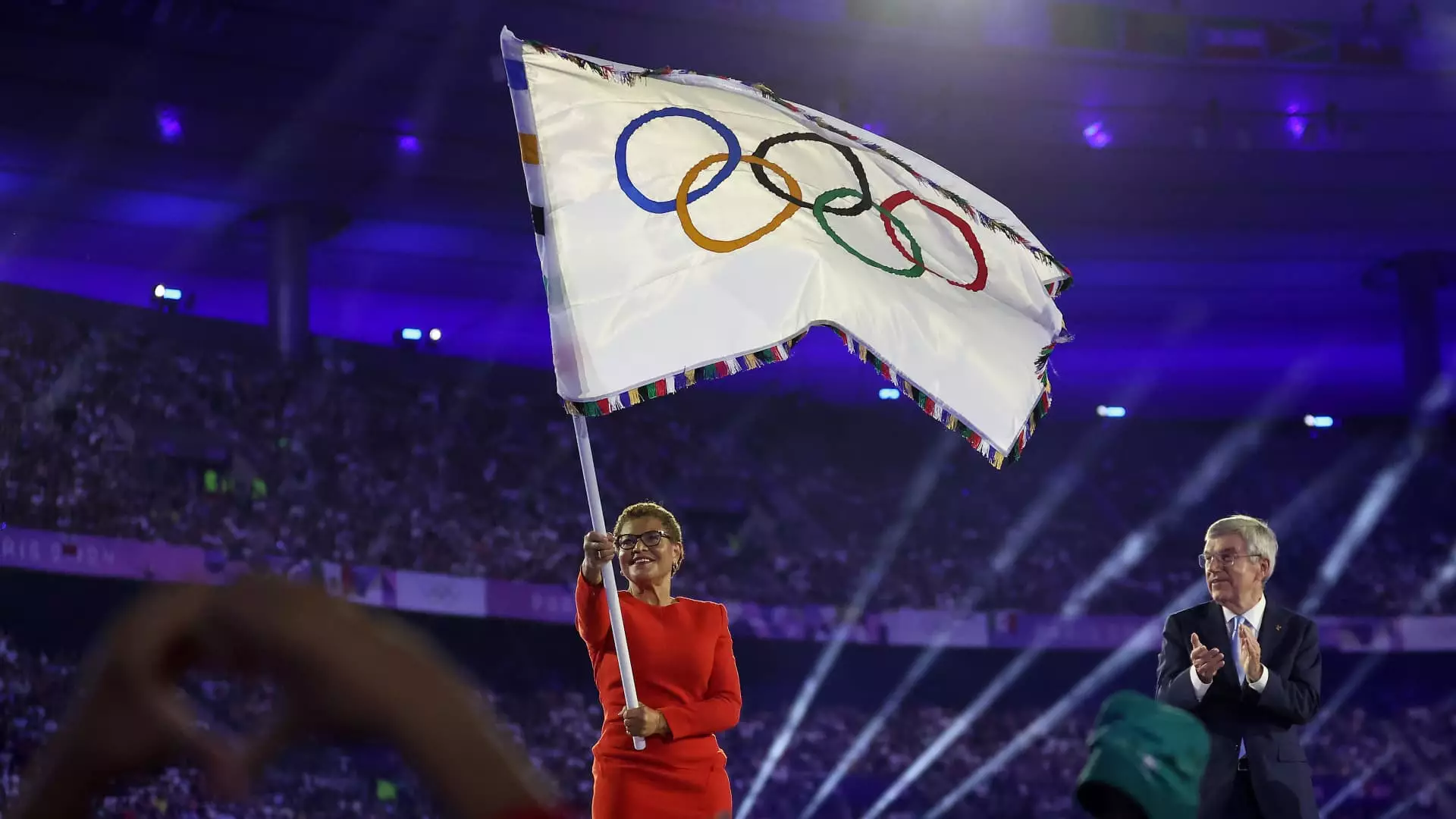The excitement surrounding the Olympics can often overshadow the complexities involved in hosting such an enormous event. With the conclusion of the remarkably successful 2024 Olympics and Paralympics in Paris, Los Angeles is gearing up to take center stage in 2028. This will mark the city’s third time hosting the Games, a feat unmatched in modern Olympic history. Los Angeles mayor Karen Bass and other key figures are initiating extensive preparations to ensure that the upcoming event not only succeeds but also leaves a lasting legacy for the city.
Among the many responsibilities that fall on the shoulders of city officials, a significant concern for Mayor Bass lies in the infrastructure demands of the Olympics. During a recent discussion with CNBC’s Andrew Ross Sorkin, she emphasized the importance of a robust public transportation system to accommodate the influx of visitors without overwhelming the city’s roadways. The ambitious goal is to maximize the use of public transport to eliminate the reliance on private cars. This requires a considerable financial investment in bus and subway systems and may necessitate collaboration with neighboring municipalities.
Moreover, the issue of homelessness is another paramount challenge that Bass highlighted. As Los Angeles prepares for the Olympics, city leaders are looking to introduce initiatives such as constructing over 18,000 new housing units for the homeless. This proactive approach aims not only to enhance the city’s image for the world stage but also to address a pressing social issue that has plagued Los Angeles for years.
Another avenue for refining the Games experience lies in traffic management. The city is exploring innovative solutions to tackle potential congestion during the Olympics. In a move reminiscent of strategies applied during the 1984 Games, there will be discussions with local companies to encourage remote work arrangements and adjust delivery schedules. By shifting deliveries to nighttime hours and adjusting commuter traffic patterns, Los Angeles hopes to minimize disruptions and maintain a manageable flow of movement during this high-traffic period.
Mayor Bass’s belief that organized regional planning can mitigate traffic challenges reflects the city’s commitment to comprehensive preparation. With the right strategies in place, it is conceivable that Los Angeles could use the Olympics as a catalyst to modernize its transportation framework while improving overall livability for its residents.
The uniqueness of the 2028 Olympics will stem from Los Angeles’s vibrant cultural landscape. LA 2028 President Casey Wasserman pointed out that the last Olympics reminded everyone of the magic of the Games, and organizers aim to replicate this allure. While no new permanent venues will be constructed, as has been the custom in previous Olympics, using iconic landmarks as settings for events poses both challenges and opportunities.
For instance, the Olympic Torch handover ceremony showcased the Hollywood Sign, a globally recognized icon. While the logistical realities of featuring such landmarks are complex — requiring consideration of rules surrounding alterations — Wasserman sees the potential for innovative collaborations that can creatively portray the spirit of Los Angeles.
Actress and board member Jessica Alba echoed this sentiment, asserting that the Games will serve as a global stage to showcase the multifaceted aspects of the city, from its entertainment legacy to its unique culinary offerings. Her assertion that “LA is a main character” speaks volumes to the aspirations of the organizers: the Olympics must reflect the true essence of Los Angeles and engage its diverse population.
As the 2028 Olympics draw closer, Mayor Bass and other leaders are not merely focused on the events themselves but are also strategizing for a lasting impact. Be it through improved infrastructure, initiatives to combat homelessness, or a focus on cultural representation, the underlying aim is to ensure that the Games leave a positive legacy.
While challenges await, the collective ambition of Los Angeles residents, city leaders, and stakeholders paints a hopeful picture. With a firm commitment to preparation and innovation, there’s potential not just for a memorable Olympic experience but also for transformative benefits that will endure long after the closing ceremony. Ultimately, the 2028 Olympics can serve not only as a showcase of sport but as a pivotal moment to reimagine and redefine what a city can aspire to be.

